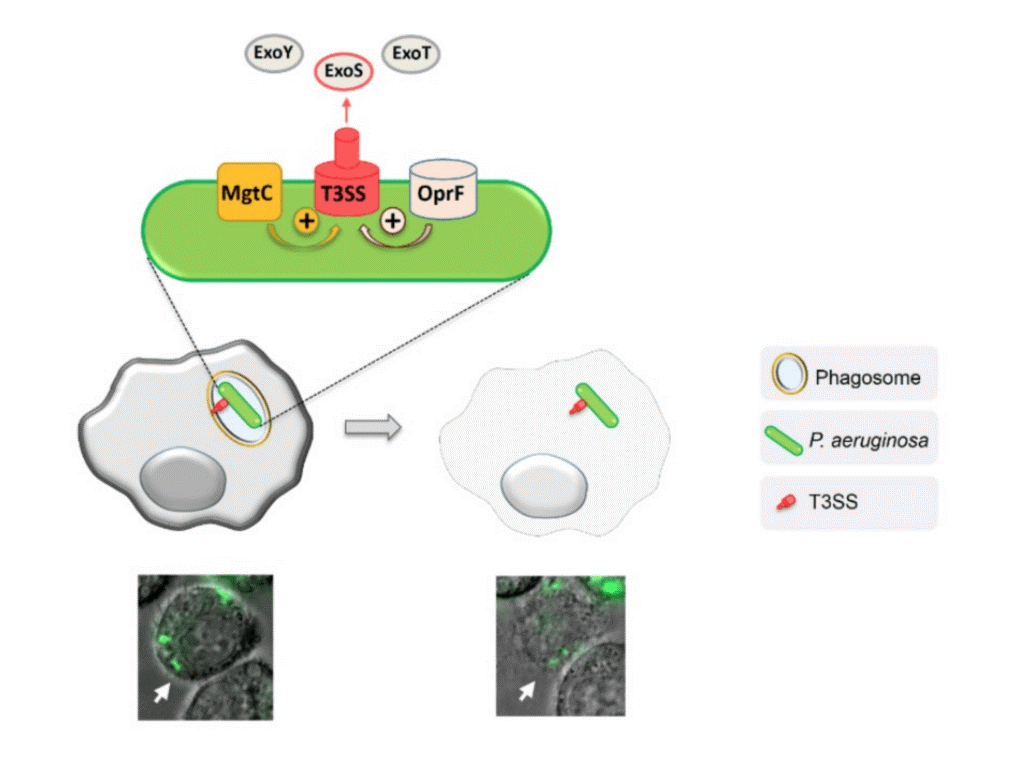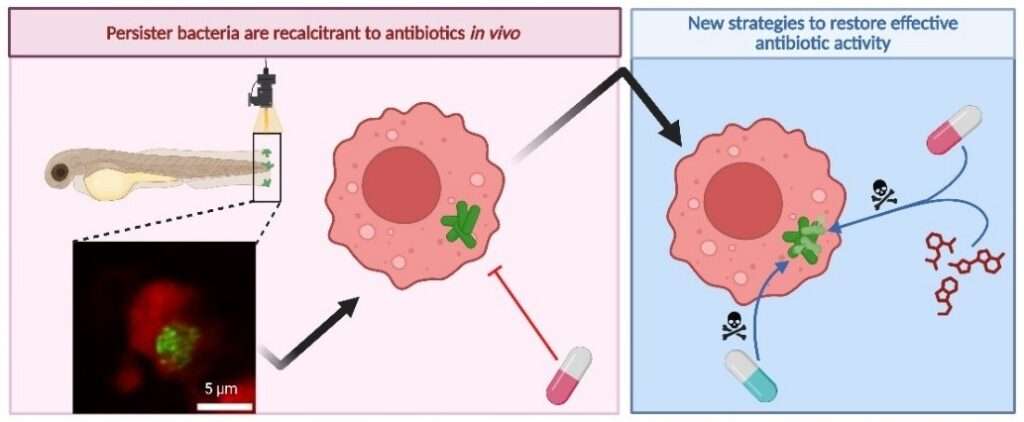Research projects – Group A. Blanc-Potard
In the global context of antibioresistance, we study the interaction between pathogenic bacteria and host macrophages during acute and chronic infections, the latter being particularly refractory to antibiotic treatment. Our aim is to develop innovative in vivo models and discover novel anti-virulence / anti-infectious compounds.
AxIS 1. Role of intramacrophage stage during PSEUDOMONAS infection
The intracellular life of P. aeruginosa is an emerging topic and our goal is to better understand the role of intramacrophage phase during chronic infection. We are studying bacterial factors involved in this step (MgtC, OprF, T3SS ..), as well as host factors and inflammatory response, both in cell culture and zebrafish model, using cutting-edge imaging techniques. The role of this intramacrophage phase in the establishment, dissemination and persistence of the infection is addressed using both laboratory and clinical P. aeruginosa strains, with the aim to correlate intramacrophage behavior with clinical traits.

AxIS 2. IDENTIFICATION OF ANTI-VIRULENCE and ANTI-INFECTIOUS therapies
Increasing antibiotic resistance in various bacteria urges for the development of novel antibacterial strategies and factors involved in intramacrophage survival, as MgtC, provide new targets for anti-virulence compounds. Structural analysis of the therapeutic target MgtC paves the ways for the design of anti-infective molecules (collaboration CBS, Montpellier).
Chronic bacterial infections are tolerant to antibiotics. This feature can reproduced in zebrafish embryos infected by clinical P. aeruginosa, which allows to better understand the tolerance of persistent P. aeruginosa to antibiotics and validate alternative therapeutic strategies (potentiator of antibiotics, cell permeant antibiotics).
